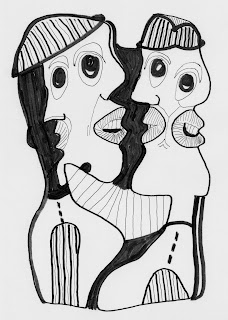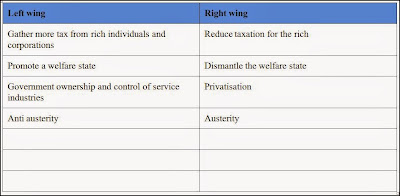BUT:
- Search engines can return useful links (Ref: Google)
- There are many online encyclopaedias (Ref: Wikipedia with its neutral point of view)
- Using social networks you can follow and be followed by like minded souls from all parts of the planet. (Ref: Facebook and Twitter)
- Like minded souls may well have blogs and websites from which you can take a feed. (Ref: Blogger and Wordpress)
- The system learns your preferences and points you to interesting places. (Ref: ebay and Amazon)
SO …
It is relatively easy to focus on particular topics and to herd other people’s cows ie to analyse, systematise and memorise the conventional wisdom of the dominant group (COWDUNG).
It is also relatively easy to compare and contrast the ‘permissible’, alternative points of view that delimit and legitimise the hegemonic borders of what the Establishment considers to be ‘acceptable’ discourse.
It is also relatively easy to log in to the thoughts and feelings of the free thinkers who form the revolutionary vanguard. Often working in think tanks, these freelance philosophers exert countervailing and elegant power by liberating and deconstructing ideas that suffer elite capture.
Emancipated wage slave
When I was still a wage slave my duty and task was to rewrite thick, jargon laden, documents in plain language. So I was mainly reworking established wisdoms. My own thoughts and feelings were parked out of sight and rarely entered the attention centre.
Now I am retired and free to populate attention with whatever thoughts, feelings and moods (TFM) happen to emerge from the unconscious. I note a tendency to go back to Zoology which I studied from 1967 to 1971. My dissertation was in neurology and my extended essay was in primate social behaviour – small world.
My main areas of interest these days are intellectually in neurology, evolutionary psychology, big history, and mindfulness meditation, and, technically, in the art/craft of writing/blogging.
Linked TFM include:
- Not being an accredited psychotherapist my first hand observations are limited to my own mindbrain
- There are several subjective versions of ‘ego’ (I, me, mine, myself) (there is also William the witness – see earlier posts.)
- Most of what the mindbrain does is confined to the unconscious
- My main task is to become more aware of and awake to what goes on in the unconscious. This is done by paying attention to, and capturing what appears in, the attention centre. The ‘products’ are presently doodles and various forms of text.
- ‘I’ am hard wired in the same way as everybody else but my enculturation is idiosyncratic as it includes many years working and living in various parts of the tropics. So in some ways what is ‘true’ about me is true of all humans, and in some ways my ‘I’ is unique.
- ‘Present moment, wonderful moment.’ There is dis-ease (anxiety, stress, depression low self esteem and ‘what will people think?’) when I am mindful of the past or of the future. There is easy peace when non-egoic and in flow.
- While being mindful of the present (eg by watching the breath) the switch can be flipped from dis-ease to easy peace.
- The present moment these days typically lasts for only seconds although there can be switching. This is now the third day of writing this story. There has been a series of moments of thinking and typing which total about two or three hours. So how long did it take to write the story – three days or three hours?
- The train of thought never stops for long on the never ending highway. Knowing this makes it possible to be unattached to a world view. Who lays the tracks?
- The virtual Sangha is online with video, audio and text.
- The analogue Sangha has about 30 regular members who meet once a week forty miles away. I have also attended several weekend retreats
- My blog is a drip feed of pebbles in a pond where ripples run away – hopefully
There are many good thinkers and writers on all of my favourite themes. I am presently interacting with http://www.mindful.org/ whose board of advisors includes Jon Kabat-Zinn and Ritchie Davidson. And I am reading Watt, Tessa (2012-01-05). Introducing Mindfulness: A Practical Guide Icon Books. Kindle Edition.
Both sources are in plain language and are based on the experiences of large numbers of people. It is excellent stuff. I cannot compete as a textbook writer. I can, however, bear witness to what goes on in my head in terms of TFM. The target is a story every two days. The hope is that the stories might touch a raw nerve in some readers and that they are encouraged to continue their spiritual journey because of the revolutionary ripples from this idiosyncratic retreat.

















